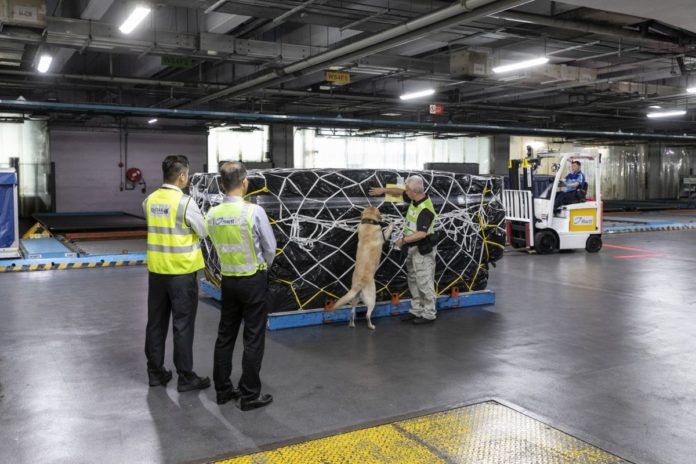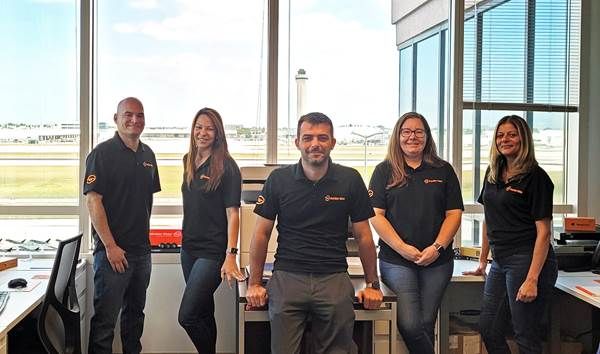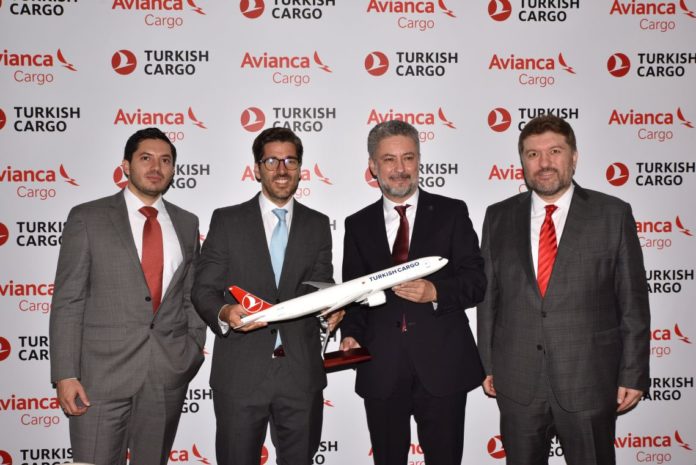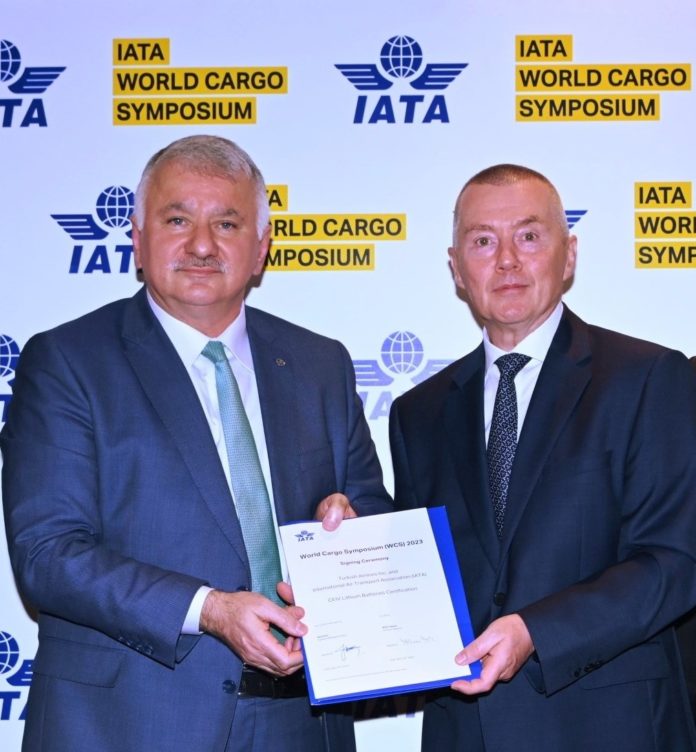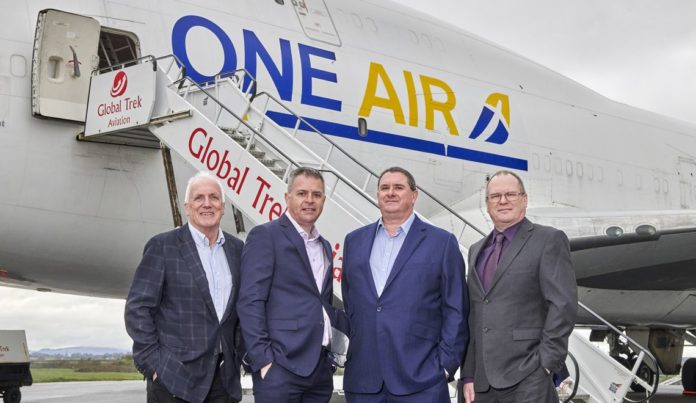Qatar Airways Cargo has teamed up with ground handler Hong Kong Air Cargo Terminals to offer detection dogs to sniff out hidden lithium batteries in air cargo.
The service is being provided by MSA Security. The dogs are specially-trained to detect specific odours, in loose, palletised or containerised cargo. In proving trials at Hactl, an MSA dog successfully detected packages containing lithium batteries in PCs, and a single power bank, located on pallets containing other general cargo.
Qatar Airways Cargo and Hactl are the first carrier and cargo handler in Hong Kong to utilise trained sniffer dogs for lithium battery detection. They say that X-ray detection alone cannot reliably identify lithium batteries, particularly for e-commerce shipments containing multiple types of product in small packages.
MSA dogs are trained at one of the company’s eleven canine training centres in the US, and housed locally in a dedicated kennel in Hong Kong. Further dogs are constantly being trained, and can be made available at short notice in the event of increased demand.
Hactl is already conducting trials with another major operator, and plans to offer the technical detection dog service option to all of its customer carriers.







